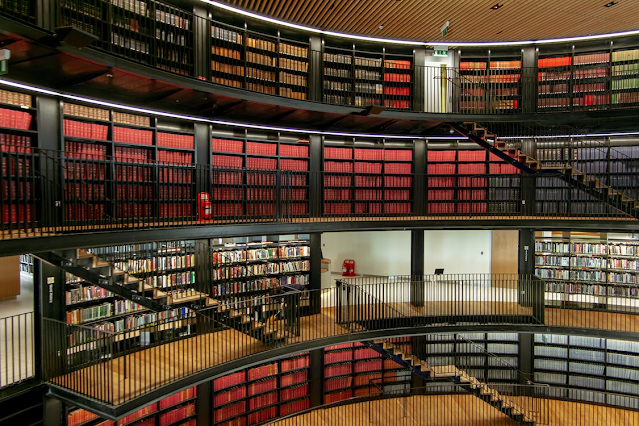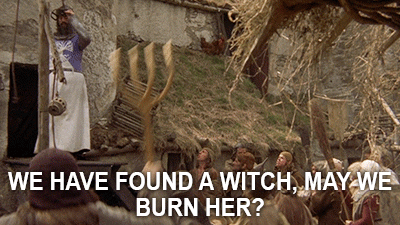Do You Really Know What You Think You Know? 6 Steps to Uncovering True Knowledge
In a hurry? Listen on the go!
How Do We Know What We Know?
Have you ever found yourself confidently discussing a subject, only to find out you were actually wrong, or that there was an alternative view you never considered?
It's a common experience we all share.
In a world abundant with information, it can be challenging to discern what is factual and what is mere conjecture.
This article delves into the question ‘how do we know what we know?’ -
urging you to challenge your existing knowledge and embrace a mindset of
continuous learning and growth.
The Illusion of Knowledge
The Pitfall of Memorization
As humans, we have a tendency to rely on memorization and rote learning as a
shortcut to understanding. We absorb information from various sources
without critically evaluating its validity.
Just because we can recite facts, it doesn't mean we truly comprehend the
subject matter. Remember the words of Albert Einstein: "Any fool can know.
The point is to understand."
You might sound impressive spewing out information about a topic, but do you
really understand the subject? Can you explain what would happen if certain
variables changed?
Where did you get the information from? Is it a credible source, or was it
something you heard someone else say – in which case, how do we know what we
know is true?
The Influence of External Sources
Often, our beliefs are shaped by the opinions of others or the media. We
trust authority figures, assuming they possess accurate knowledge…
However, it is crucial to remember that even experts can be wrong, and
sometimes (or often?), people also bend ‘facts’ to suit their own agendas
too.
As the philosopher René Descartes wisely said, "If you would be a real
seeker after truth, it is necessary that at least once in your life you
doubt, as far as possible, all things."
The Quest for Authentic Knowledge
Questioning Assumptions
To uncover the truth, it is essential to question the assumptions underlying
our knowledge. Start by asking yourself: "Why do I believe what I believe?"
By challenging your assumptions, you open yourself up to new perspectives
and a deeper understanding of the subject matter.
Often you will find you simply believe something because you were told it
was when you were a child, but this could have been a fleeting comment said
by a parent to stop your questioning, or an incorrect point of view from a
friend who thought he knew the answer…
As Socrates famously stated, "An unexamined life is not worth living."
Seeking Multiple Perspectives
Broaden your knowledge by actively seeking out alternative viewpoints.
Engage in meaningful discussions, read diverse opinions, and expose yourself
to contrasting ideas.
Embrace the words of John Stuart Mill: "He who knows only his own side of
the case knows little of that."
Testing and Validating Knowledge
Empirical Evidence
One way to ascertain the validity of your knowledge is through empirical
evidence. Seek out scientific studies and research that support or challenge
your beliefs, and find multiple credible sources that can verify your
assumed facts.
Empirical evidence provides a solid foundation for reliable knowledge. As
Carl Sagan aptly put it, "Extraordinary claims require extraordinary
evidence."
Experimentation and Experience
Put your knowledge to the test through experimentation and practical
experience. Actively apply what you have learned in real-world scenarios. By
doing so, you gain first-hand insights and validate your knowledge. Remember
the words of Benjamin Franklin: "Tell me and I forget, teach me and I may
remember, involve me and I learn."
The Growth Mindset
Embracing Open-Mindedness
To expand your knowledge, cultivate an open mind and be willing to learn. Be receptive to new ideas and willing to question your own beliefs.
Embrace the words of Bertrand Russell: "The whole problem with the world is that fools and fanatics are always so certain of themselves, and wiser people so full of doubts."
Always consider that there is a better way of doing something and be willing
to consider the perspective of other people.
Lifelong Learning
Knowledge is not stagnant; it evolves over time. Adopt a mindset of lifelong
learning, constantly seeking to update and refine your understanding.
Explore new subjects, engage in continuous education, and stay curious.
Ralph Waldo Emerson reminds us, "Do not go where the path may lead, go
instead where there is no path and leave a trail."
Knowing What You Now Know
In the pursuit of knowledge, it is essential to question what we think we know by always asking ourselves the question, how do we know what we
know?
Only by recognizing the limitations of our own understanding, seeking
multiple perspectives, and actively testing and validating our knowledge,
can we truly grow.
While it may be unsettling to realize that what we thought we knew might be
flawed or incomplete, it is an opportunity for personal and intellectual
growth. Embrace the uncertainty and recognize that true knowledge is not
stagnant but dynamic - it is ever-evolving with new discoveries and
insights.
How to check that you know what you know might not be all there is to know…
To further empower yourself on this quest for authentic knowledge, here are
some actionable steps you can take:
1. Conduct in-depth research: Explore beyond surface-level information using
reputable sources, scholarly articles, and peer-reviewed studies.
2. Challenge your beliefs: Seek out information that challenges your
existing beliefs, engage in debates, and surround yourself with diverse
perspectives.
3. Verify and validate: Critically analyse information, demand solid
evidence, and consider real-life examples and corroborating studies.
4. Embrace intellectual humility: Admit when you're wrong and be open to
learning from others. True wisdom comes from questioning, learning, and
adapting.
5. Reflect and refine: Regularly reflect on your knowledge and beliefs,
allowing new information to shape your understanding and refine your
perspective.
6. Be mindful of cognitive biases: Recognize biases that cloud judgment,
like confirmation bias, and actively combat them for a more objective
understanding.
Remember, the pursuit of knowledge is a lifelong journey, and it is the process of questioning and refining our understanding that leads to true enlightenment.
By embracing an open mind, actively seeking multiple
perspectives, and consistently challenging your beliefs, you pave the way
for intellectual growth and a deeper comprehension of the world around
you.
Conclusion
The question "How do we know what we know?" is both profound and
transformative. By cultivating a mindset of curiosity, you can embark on a
journey of self-discovery and expand your understanding of the world.
Embrace the uncertainty, challenge your assumptions, and dare to explore new
horizons. In doing so, you will unlock the path to genuine knowledge and
become a lifelong learner on a quest for truth.






Comments